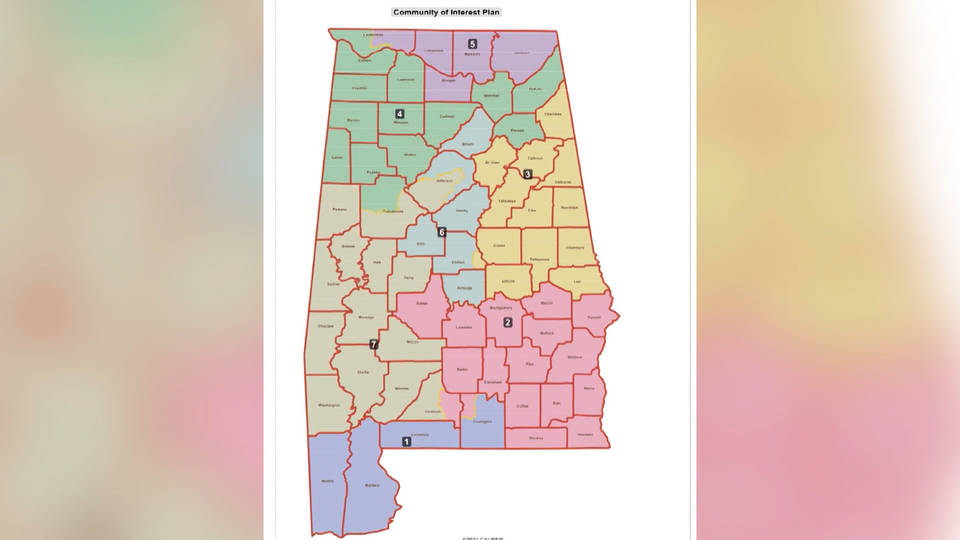A panel of federal judges on Tuesday struck down a new congressional map created by Alabama Republicans that includes only one majority-Black district, defying a Supreme Court order.
“We are disturbed by the evidence that the State delayed remedial proceedings but ultimately did not even nurture the ambition to provide the required remedy,” the three judges of the U.S. District Court for Northern Alabama wrote in a 217-page order Tuesday. “And we are struck by the extraordinary circumstance we face.”
“We are not aware of any other case in which a state legislature — faced with a federal court order declaring that its electoral plan unlawfully dilutes minority votes and requiring a plan that provides an additional opportunity district — responded with a plan that the state concedes does not provide that district,” they added.
A special master will be appointed to redraw a “remedial map to ensure that a plan can be implemented as part of an orderly process in advance of elections, where the State was given an opportunity to enact a compliant map but failed to do so,” the judges wrote.
State Republicans are expected to appeal the decision.
In a statement Tuesday, the state attorney general’s office said: “While we are disappointed in today’s decision, we strongly believe that the Legislature’s map complies with the Voting Rights Act and the recent decision of the U.S. Supreme Court. We intend to promptly seek review from the Supreme Court to ensure that the State can use its lawful congressional districts in 2024 and beyond.”
Alabama Republicans approved a new map in July that included just one majority-Black seat and a second district that was about 40% Black. The GOP-controlled Legislature redrew an earlier map after the Supreme Court upheld a federal court order to include two districts where Black voters make up voting-age majorities, “or something quite close to it.” The high court found that the newly drawn congressional map violated the Voting Rights Act.
The Alabama House passed the bill on a 75-28 vote after the state Senate voted 24-6 in favor of the revised map.
Republican Gov. Kay Ivey signed the map into law in July. Her office, the Alabama House Republican Caucus and its majority leader, Rep. Scott Stadthagen, didn’t immediately respond to requests for comment about the federal court ruling Tuesday.
“Following the U.S. Supreme Court order, I called the Alabama Legislature into a special session to readdress our congressional map,” Ivey said in a statement in July after she signed the measure. “The Legislature knows our state, our people and our districts better than the federal courts or activist groups, and I am pleased that they answered the call, remained focused and produced new districts ahead of the court deadline.”
The redrawing of the congressional map in Alabama has gained the attention of congressional lawmakers on both sides of the aisle in Washington as redistricting battles play out in the courts in Alabama, New York, North Carolina, Georgia, Texas and other states ahead of next year’s elections. Republicans hold a slim majority in the House.
Rep. Terri Sewell, D-Ala., swiftly praised the federal court’s ruling Tuesday. Sewell, the state’s sole Democrat in Congress, led an amicus brief by the Congressional Black Caucus last month that said the new congressional map by Republicans “entrenches the historical exclusion of Black Alabamians from participating in our American democracy.”
“Today’s decision is yet another victory for Black voters in Alabama and for the promise of fair representation,” she said in a statement. “By appointing a special master to fairly redraw Alabama’s congressional map, the court has rejected the state Legislature’s latest attempt to dilute the voices and voting power of African Americans all across our state.”
She added: “While we were outraged by the Alabama State Legislature’s open defiance of the Supreme Court’s original order to create two majority-minority districts, I am nonetheless grateful that a federal court has now intervened to protect the voices of Alabama’s Black voters. The Voting Rights Act of 1965 is indeed alive and enforceable!”

